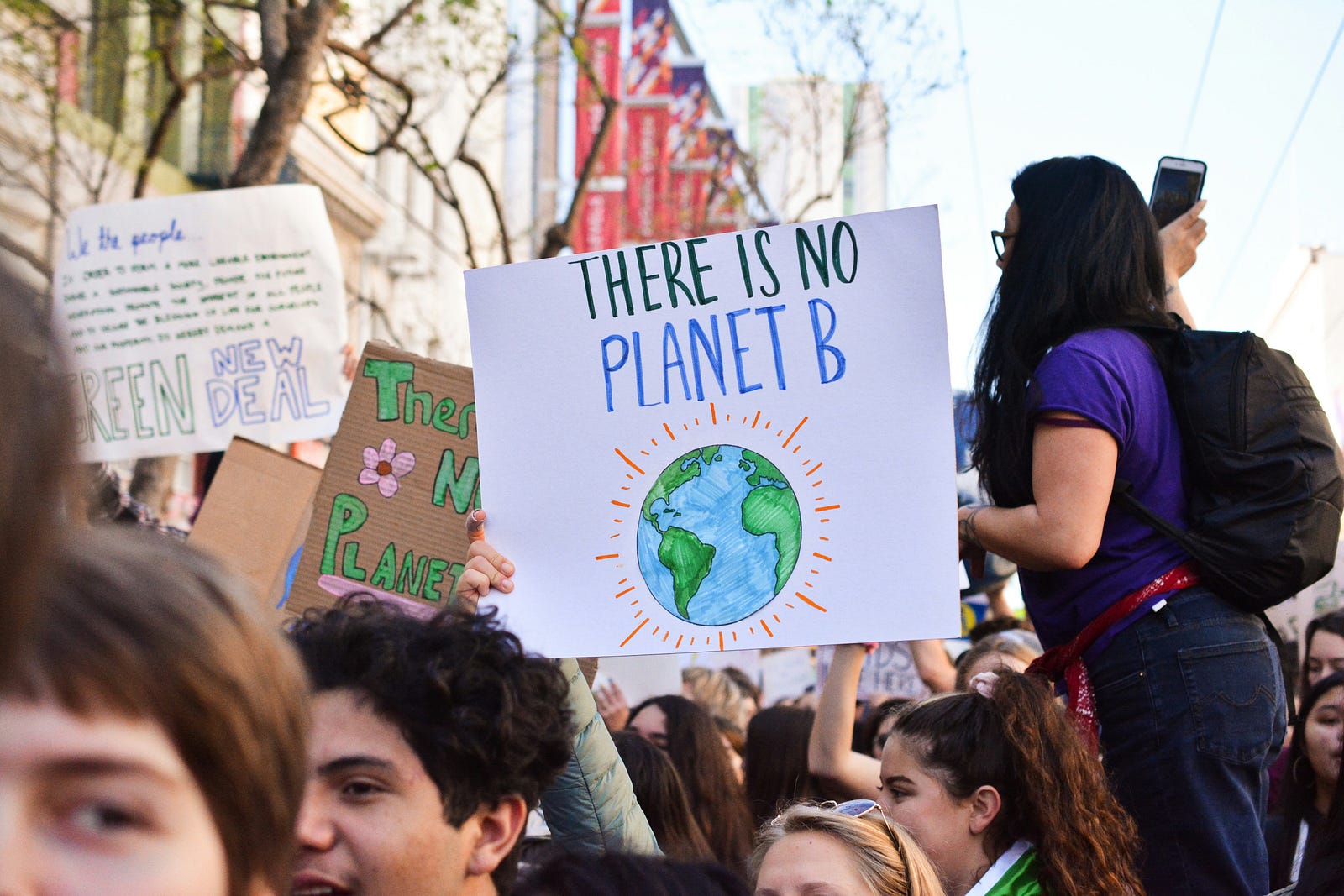A silent revolution is beginning to have enormous social ramifications
You can start with nothing, and end with everything. That’s the American dream, baby! What makes the dream so tantalising is that YOU are the master of your own destiny. Work hard, persevere, show endeavour, and you’re sure to be rewarded with wealth beyond your wildest dreams. It’s the dream that drives the American economy.
When it comes to results, the proof is in the pudding. America is home to 25 million millionaires, by far, the most millionaires in the world. In total, 40 per cent of global millionaires live in the America. 10 per cent of the American adult population has millionaire status.
When you couple that with the fact that for well over 100 years, America has been the world’s largest economy by gross domestic product (GDP), and on paper, you would imagine Americans are living in blissful happiness. That is, after all, the point of everyone trying to get (or remain) so rich — to enhance well-being and live lives of prosperity.
This idea, that the richer you are, the happier you’ll be, lies at the heart of economic thinking. Conventional economics tells us that increasing GDP (which is achieved through economic growth) is good for everyone in society because it ultimately leads to increasing incomes.
If incomes are increasing, people can buy more consumer goods. Seeing as it’s assumed that the more we can buy, the happier we will be, again, one would assume Americans must be as happy as can be.
Only, there’s a slight glitch in the system. The findings from the 2024 World Happiness Report show America has dropped to 23rd in a list of happiest countries, the first time it’s ever fallen outside of the top 20. Young people, that is, people under 30, are unhappier than ever and are increasingly experiencing what was once a mid-life crisis.
As the wealthiest country in the world by GDP, this state of affairs makes no sense. So what’s going on?
The haves and have-nots
What’s more important than wealthy by GDP as some arbitrary metric, is how increases in wealth are distributed throughout society.
Since the 1970s inequality has been steadily increasing in America. The Pew Research Center argues inequality has now reached levels not seen since 1928, a year when the top one per cent of families received 23.9 per cent of all pretax income.
America may be richer as a whole, but rising inequality means millionaires are taking a disproportionate amount of the gains, leaving most Americans poorer as a result.
It’s estimated that 78 per cent of Americans live paycheck to paycheck. So three in four Americans struggle to save or invest after paying their monthly expenses. Many depend on credit cards to make ends meet, with the Federal Reserve of New York estimating credit card debt now stands at $1.13 trillion.
Plenty of others are being forced onto the streets. The US census estimates that on a single night in 2023, over 650,000 people in the U.S. experienced homelessness, up 12 per cent from 2022.

When you couple rising inequality with festering social and racial tensions, increasing political polarisation and a deep distrust for institutions, particularly government, and under the surface it seems clear why Americans are increasingly unhappy.
There is, however, another disquieting explanation for the general malaise gripping America, and it revolves around values.
A shift in values
In The Silent Revolution, published in 1977, the political scientist Ronald Inglehart hypothesised that a profound slow-moving shift in values was taking place in society without anyone realising the consequences.
In Human Values and Beliefs, Inglehart described the shift as one where “a new worldview is gradually replacing the outlook that has dominated industrialising societies since the Industrial Revolution.”
The Industrial Revolution triggered a similar transformation of values. In agrarian societies, life was defined by ‘traditional’ values. As Paul Abramson and Inglehart Value Change in Global Perspective, traditional values “discouraged social mobility and emphasised tradition, inherited status, and communal obligations, backed up by absolute religious norms.” Traditional values centred on accepting one’s place in society. The poverty and suffering that accompanied it was the will of God.
Abramson and Inglehart continue by arguing the Industrial Revolution upended the traditional social structure, creating a worldview that “encouraged economic achievement, individualism and innovation, accompanied by increasingly secular and flexible social norms.”
Rather than social status being something you were born into and accepted as your lot, it was something you had the power to enhance. As a result, ‘traditional’ values were replaced with ‘materialist’ ones.
The end of the second world war marked a line in the sand in the human experience that has once again reshaped people’s values. Two crucial elements have contributed to this reshaping of values.
Firstly, abundance has driven prices down, particularly food prices relative to wages. A daily struggle to meet one’s needs has been replaced by those needs being a basic expectation.
Secondly, large parts of the world are remarkably peaceful. War is something that happens, sure, but it’s something we watch on TV or social media, the idea of some impending invasion or conflict on our doorsteps feels unimaginable.
The Silent Revolution
More people being raised in material comfort and without the risk of war has seen a shift from ‘materialist’ to ‘post-materialist’ values. It’s a silent revolution because there is an ongoing intergenerational shift, where a greater proportion of each passing generation has post-materialist values.
These different values and worldviews reflect a shift in what people want out of life. While materialists are driven by economic security and financial success, post-materialists prioritise individual lifestyle choices and self-expression.
In Human Values and Beliefs, Inglehart explains how materialists emphasise goals such as “economic growth, fighting rising prices, maintaining order and fighting crime.” Meanwhile, post-materialist values are reflected in “giving people more say on the job or in government decisions, or protecting freedom of speech or moving toward a less impersonal, more humane society.”
Our socialisation determines the values we prioritise when we get older. Estimates that 53 million Americans visited a food bank in 2021 alone, is a testament to the fact that not everyone is raised in material comfort.
If you’re raised in a low-income household and feel poor compared to other children (poverty often reveals itself at school, leading to feelings of inadequacy and embarrassment compared to your peers), it’s more likely to lead to a materialistic outlook.
Being raised in a middle or high-income household where access to food is never a concern and material needs are easily met, is more likely to lead to post-materialist values.
This value shift is part of a broader shift in norms and attitudes towards the environment, politics, religion, work, family, sexuality and gender equality.
Culturally, attitudes toward the LGBTQ+ community have transformed as post-materialists tend to be far more tolerant and call for a more inclusive society where self-expression is celebrated.

A profound dilemma
This shift in values creates a profound dilemma when it comes to how we structure the economy and society. Economic growth has, since the Industrial Revolution, been the goal of all societies due to rapid increases in living standards in advanced industrial nations.
While the results have been miraculous, economic growth has largely finished its work in advanced economies like America. More growth isn’t leading to increased well-being (if anything, it harms well-being).
As we’ve said, poverty persists due to increasing inequality and a lack of distribution, not because there isn’t enough wealth. And yet, the goal of the economy remains unquestioned, so social values and norms still centre around materialist values.
Materialist values developed alongside and complement a growth economy, and are best expressed through consumerism. Materialists gain fulfilment from seeing their social status enhanced and having more material possessions than those around them.
The values of post-materialists, however, conflict with those glamorised by society at large. Rather than an opportunity to enhance their status through financial success, post-materialists are confronted by a vacuous system that offers little meaningful rewards. It leads to a deep sense of dissatisfaction, frustration and unfulfillment.
Bubbling discontent
So what’s the solution?
Well, things will get worse as we progress into the twenty-first century because economic growth as an economic (and social) goal will continue to go unquestioned. It has to be because growth is required to sustain capitalism.
What’s required, for all sorts of reasons, is a shift away from a capitalist growth economy to a degrowth economy. But an inability to move beyond growth has become an intrinsic weakness that’s increasingly translating into fermenting social tensions.
In a bitter irony, the success of capitalism in producing social prosperity has led to a shift in values where large sections of society question the very system that has provided that prosperity.
In The Roots of Public Opinion, the political scientist Robert Rohrschneider argues the fact that post-materialists don’t accept the dominant social values means they are “more prone to support (or engage) in protest movements that criticise the existing political order.”
The environmental movement is a movement that resonates with post-materialists. It’s not just defined by protests against the environmental impacts of capitalism; it questions a system that doesn’t strike a chord with post-materialist values and aspirations.

While a growing proportion of the population is increasingly critical of capitalism, it doesn’t exactly feel like there is an imminent risk the movement is spearheading some kind of social transformation that allows for a shift away from a growth economy, does it?
What those stats on happiness suggest though, is that the system is in major need of radical change.
A moment in time
Ultimately, radical social change only occurs when things start to go badly in society. The picture looks far from rosy at present, but with most people just about getting by, the conditions aren’t quite right to produce radical social change.
Up ahead though is the small matter of climate change that is set to create weather extremes that will lead to wave after wave of social crises. An example is an increased risk of global droughts that create food shortages and price spikes.
When the climate crisis starts to feel like a crisis, economic shocks, inflation and shortages will become the order of the day. Crucially in that environment, when it becomes apparent a return to a period of stability is unfeasible, even to the most optimistic members of society, people will feel poor compared to a previous state of comfort.
The World Economic Forum’s Global Risks Report 2022 argues that as more people begin to suffer the consequences of environmental changes, government failure to respond appropriately will lead to large sections of society becoming increasingly marginalised. As they do, there is a risk of radicalisation.
It’s in that environment; when living standards are falling sharply; when social unrest is bubbling under the surface; when the stench of war lingers in the air, that’s when the obstacles to radical change will begin to crumble.
An increasing proportion of Americans are crying out for new forms of meaning. They are crying out for a different economic system. One that reflects their wants, needs and values. One that measures success, not by assuming that increasing GDP must be leading to increasing well-being. One that isn’t fixated on measuring one’s worth by productivity. One that recognises and celebrates and harnesses the full human. Now that’s a dream worth striving for. That’s a dream to offer hope in the midst of suffocating malaise.



